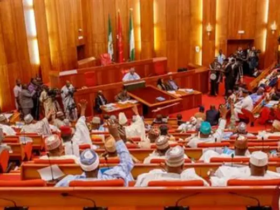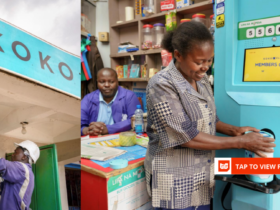There is a potential for Artificial Intelligence (AI) to create a significant number of new jobs in South Africa and across Africa. However, for this potential to be realized, it is essential for the continent to establish AI laws and policies that promote its growth effectively. A recent report by research and advisory firm Caribou Digital and the Mastercard Foundation emphasizes the importance of creating an environment conducive to AI advancement.
Currently, Africa lacks the necessary infrastructure to lead local AI development. The continent is in need of a transformative force for its economy, and AI’s capacity to generate new industries positions it as a prime candidate. However, the lack of comprehensive understanding of AI and its economic impact poses a significant challenge, particularly in terms of youth employment.
The failure to grasp the potential and economic benefits of AI puts Africa at risk of missing out on the growth opportunities driven by this technology. While AI has the potential to drive youth employment, many governments have yet to establish policies that encourage innovation while also addressing potential risks. Existing policies are either too rigid or too lenient, hindering progress in AI development. Governments need to collaborate with experts in various sectors to create practical and forward-thinking AI frameworks.
One of the recurring issues in AI development in Africa is the gap between government policy and actual implementation. Collaboration with practitioners and industry experts is crucial to crafting policies that are effective and supportive of innovation, as highlighted by Megan Yates, co-founder of Zindi, a data science training platform.
Despite some progress in AI policy in a few African countries, the majority still lack a formal framework for AI development. While steps are being taken to create AI laws and expert bodies to guide policy development, AI innovation clusters—essential for economic growth and youth employment—are operating without sufficient government support or coordination.
Academia plays a vital role in AI development in Africa, but there is a shortage of institutions offering AI curricula and a lack of trained staff to advance the technology. Dr. Deji Ajani, Chief Digital Officer at Leads Innovation Limited, advocates for practical skill-building programs to equip students with the necessary skills for AI development.
Inadequate infrastructure is another significant challenge to AI development in Africa, as AI models require substantial computing power. While local data centers are growing, issues such as energy shortages, high operational costs, and limited internet connectivity hinder their capacity. Without sufficient infrastructure, only a small portion of Africa’s AI talent can access the resources needed for advanced model building and scaling.
Investors, Big Tech companies, and donor-led organizations have been leading infrastructure and talent development efforts in different African regions. However, collaboration among all stakeholders is essential to address the challenges hindering AI development in Africa.
With a market size of $3.7 billion and a 28.34% compound annual growth rate (CAGR), AI presents significant opportunities for Africa. Governments need to play a catalytic role in fostering AI innovation by working with researchers to develop robust policies. Local investments in AI have shown promise, with investors channeling funds into deep tech, but more opportunities need to be created for innovators.
To fully unlock the economic potential of AI, Africa requires coordinated efforts from governments, academia, the private sector, and international organizations. Collaboration among these stakeholders is key to overcoming the barriers to AI innovation identified in the report. The time for action is now—Africa must build the necessary infrastructure, policies, and educational frameworks to harness the transformative power of AI for its economy and youth.














Leave a Reply